Jimmy Snuka
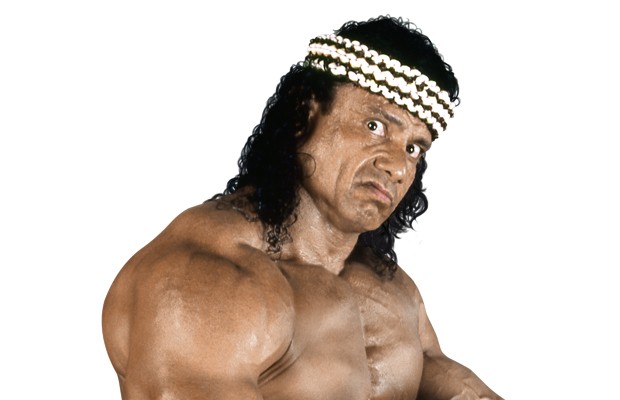
Former WWF star Jimmy “Superfly” Snuka was arrested and charged with the death of his 1983 girlfriend, Nancy Argentino, on Tuesday. Snuka was arrested at his home in New Jersey on Tuesday morning, then arraigned in Pennsylvania at the Lehigh County Central Booking Center. Snuka was jailed on $100,000 bail. A preliminary hearing is set for September 21, according to court records.
Snuka was charged with third-degree murder and involuntary manslaughter after a Pennsylvania grand jury reviewed the cold case and submitted their findings for a judge to review.
This followed Lehigh County D.A. Jim Martin re-opening the case in 2014 after new information was discovered from a records search. Included was documentation by pathologist Isidore Mihalakis recommending that Argentino’s death be investigated as a homicide.
Martin held a press conference on Tuesday afternoon announcing some of the grand jury’s findings. Included was the determination that Snuka repeatedly assaulted Argentino and did not get her to a hospital following a domestic incident wrapped around WWF TV tapings in Pennsylvania.
Martin said that Snuka was required to appear before the grand jury during their investigation, but he did not testify. Also challenging for the grand jury was that many of the wrestlers who were witnesses or potential witnesses have died since the events in 1983.
The grand jury, which reviewed the cold case, wrote plainly in their findings that Snuka’s “assaultive acts and his failure to act to obtain medical attention resulted in her death.” The jury recommended to supervising judge Maria Dantos that Snuka be charged with homicide.
Lehigh County District Attorney Jim Martin, who presented the cold case to the grand jury, noted that Snuka was charged with third-degree murder because there was malice behind Snuka’s alleged actions. However, they did not pursue a first-degree charge because it applies “to a killing that is both willful and premeditated.”
Therefore, Snuka was charged with third-degree murder and involuntary manslaughter because they believe the evidence shows Snuka fatally harmed Argentino during an altercation and failed to provide proper medical attention.
If Snuka is convicted of the charges, he faces a maximum sentence of 20-40 years in prison. Snuka, who is recovering from stomach surgery, has made arrangements to post bail, according to Martin, but he must give up his passport.
In 1985, the Argentino family won a $500,000 wrongful death case against Snuka, but Snuka never paid because he claimed he was broke.
Morning Call reporter Manuel Gamiz noted that he reached the family by phone on Tuesday. Argentino’s sister, Louise Argentino-Upham, said it’s a relief, especially since her mother turns 90 this year. “I think that it’s been a long road,” Argentino-Upham said. “They did the right thing in face of all the evidence.”
Also, WWE issued a statement on Tuesday: “WWE expresses its continued sympathy to the Argentino family for their loss. Ultimately this legal matter will be decided by our judicial system.”
D.A. Martin acknowledged Snuka’s poor health, which is why Snuka was allowed to post bail and not be held in jail until his court hearing. If Snuka faced the possibility of a life sentence, he likely would not have been allowed to post bail. “I do not want to burden the taxpayers of Lehigh County with medical expenses, which would be extremely high and would have to be borne by them if he remained in Lehigh County Jail,” Martin said.
The grand jury reviewed testimony and statements from “20 witnesses” and Lehigh County Detective Gerald Procanyn, who investigated the case in 1983 and was present when Argentino was hurried to the hospital.
As noted previously, many wrestlers who were witnesses or potential witnesses to the events in 1983 have since died. Snuka appeared before the grand jury during their review, but he did not testify.
Statements made by Snuka in his 2012 autobiography were part of the grand jury’s review. Snuka’s inconsistent presentation of what happened to Argentino in May 1983 contributed to the grand jury deciding that Snuka should be charged with homicide. “We believe it is important to note that James Snuka changed the location of the injuries in his discussion with the chaplain to happening on the highway traveling to [the George Washington Motor Lodge], but still admitted that she sustained her injury after he shoved her and she fell backward, hitting her head on the concrete,” the grand jury wrote.
The grand jury also focused on Snuka’s mental state at the time, referencing Snuka’s autobiography. “The grand jury believes it is important to note how James Snuka related in his autobiography the state of his behavior that ‘in 1983, my personal life started getting a little crazy’ especially in his frequent use of alcohol, steroids, and cocaine,” the grand jury wrote.
Overall, Martin said the difference between prosecuting Snuka in 1983 and 2015 comes down to clearer evidence. “The grand jury and the evidence we were able to produce before the grand jury made the difference in what has happened today compared to what happened 32 years ago,” D.A. Martin said.
Argentino’s family conveyed a mix of sadness re-living Nancy’s death and relief that charges were filed against Snuka more than 30 years later. “We thought they were giving us lip service. Even when they brought the grand jury, we didn’t have much hope. We still thought they were giving us the runaround. But the grand jury really did its job and we’re grateful. The doors of justice were slammed in our face 30 years ago, but better late than never, we have a chance of getting justice,” said Nancy’s older sister, Lorraine.
Another sister, Salome, said of her mother: “She was very happy. That poor woman has been broken. She’s still so sad. She has all of Nancy’s pictures and things that she keeps around her.”
Louise Argentino recalled to NBC-2 in Florida that the family saw warning signs of abuse too late. “I saw her in the coffin and saw all the bruises the mortician covered in makeup, and I was wondering ‘What was that?’” she told the news station. “If he (Snuka) gets to do time to make up for this … He should consider it an honor to serve time for what he’s done,” she added.
The lives of then-39-year-old Snuka, 23-year-old Nancy Argentino, and Argentino’s family were forever altered 30 years ago when Argentino was found dead in a Pennsylvania hotel room belonging to Snuka in May 1983. For Nancy, it was the end of her life, for Snuka it forever changed his personal life and career, and for the Argentino family, it was the beginning of a search for justice that has lasted more than three decades.
Two years ago, new information surfaced on the case, which was still classified as an open case. The Morning Call publication in Pennsylvania unearthed documents from a Philadelphia federal archives warehouse, which includes the coroner’s autopsy on Nancy. In the document, forensic pathologist Isidore Mihalakis suggested the case be “investigated as a homicide until proven otherwise.”
The case never went to trial, though. Snuka was close to being prosecuted, but the prosecutor felt there was not enough evidence to put together a case for trial. Snuka changed his story about the events that happened on the night of May 10/11, 1983, which is supported by a transcript of Snuka’s interview with police. “I think what happened here is they were just unable to put the case together,” says then-Assistant District Attorney Robert Steinberg. “Dr. Mihalakis couldn’t give us the forensics to put the case together.”
Snuka eventually presented a simplified story of what happened: Nancy hit her head near/around a truck-stop on the way to a WWF TV taping in Allentown, Pa. on May 10, 1983, Nancy went back to the hotel room, Snuka went to the TV tapings, Snuka had a few drinks with Don Muraco and Mr. Fuji after the tapings, and Snuka returned to the hotel room, where Snuka claims he found Nancy having a hard time breathing and foaming at the mouth. Nancy was then pronounced dead at 1:50 a.m. on May 11, 1983.
But, the story is not that simple, according to the newly-discovered autopsy report. In the autopsy report, Dr. Mihalakis noted that cause of death was “consistent with a moving head striking a stationary object, but it is not consistent with a single simple fall.” The report continues, “In view of the multitudeness (of) other scalp, facial, and bodily bruises and abrasions.” Also, Deputy Coroner Wayne Snyder told police at the morgue that Nancy’s body had “several black and blue marks.”
Dr. Mihalakis added that upon examination of Nancy’s person, he found “no evidence of dirt or tears of the fabric” or “gravel or other similar dirt particles” consistent with a fall near a truck-stop.
The findings support an alternative theory that Nancy was struck or there was an altercation that led to her becoming unconsciousness. This is supported by Dr. Mihalakis’s autopsy opinion that “the multiplicity and magnitude of the injuries may even be suggestive of ‘mate’ abuse.”
However, Mihalakis told Morning Call in present-day that he “did not have a clear-cut case” at the time. “The clear-cut forensics weren’t there, but the suspicion was there,” said Dr. Mihalakis. “I did not have a clear-cut case. It was a very worrisome case. Obviously, there was enough there to arouse my suspicion, but not enough to take it to trial. Just because she was beaten doesn’t mean she was beaten to death.”
This brings the story back a few months to January 1983 when Snuka allegedly struck and “beat up” Nancy in a hotel room, establishing a history of alleged abuse. When police arrived on the scene, they reported being met by “almost superhuman resistance from Snuka” before he was subdued. An officer on the scene reported seeing Snuka “grab Nancy by the hair when she ran out of the room and drag her face against the drywall.” The police reported that Nancy’s injuries included “a bruised right thumb, a contusion to the neck, possible fractured ribs, and injury to the lower back.”
However, Nancy later told police that Snuka “never struck her or intentionally harmed her.” Snuka was charged with assault and resisting arrest, but a deal was struck in exchange for Snuka pleading guilty to a lesser charge of harassment in April 1983. This was shortly before Nancy’s death in May 1983.
The timeline of events following May 10 and 11, 1983 took numerous twists and turns that led to Snuka never going to trial and the case officially “going cold” on June 1, 1983 after Snuka and Vince McMahon met with local police.
After the police investigation was shut down, a civil suit was filed by Nancy’s family. In 1985, the Argentino Family won a $500,000 wrongful death judgment against Snuka. However, Snuka claimed to be broke and he never paid. The timeline below captures how everything changed in May 1983.
TIMELINE OF KEY EVENTS
•January 1982: Snuka joined WWF/E as a heel, being managed by “Captain” Lou Albano.
•June 28, 1982: One of Snuka’s most famous WWF matches was leaping off the top of a steel cage and missing then-WWF champion Bob Backlund.
•1982: Snuka rose up the ranks to being nearly the #1 star in the company prior to the WrestleMania Era. If the events of 1983 did not happen, it’s likely Snuka would have been #2 under Hulk Hogan when Vince McMahon, Jr. took WWF global and launched WrestleMania in March 1985.
•Jan. 18, 1983: Snuka and Nancy allegedly got into a physical altercation at a Howard Johnson motor lodge in Salina, N.Y.
•April 1983: Snuka pled down charges of assault and resisting arrest from the Jan. 18 incident to pleading guilty to harassment.
•May 10/11, 1983: Nancy Argentino died at the age of 23 after being found unresponsive in Snuka’s hotel room at the George Washington Motor Lodge in Whitehall, Pa.
•May 1983: Snuka attended Nancy’s viewing along with manager Buddy Rogers and reportedly cried as he leaned over the casket. The family believed Snuka would return to the funeral the next day, but he did not attend.
•May 27, 1983: District Attorney William Platt, now a Pennsylvania Senior Superior Court judge, said the investigation into Nancy’s death was nearly complete. “It’s just a matter of getting everybody together,” Platt said about getting the investigators and attorneys on the same page.
•June 1, 1983: Snuka and WWE head Vince McMahon met with Platt, then-Assistant District Attorney Robert Steinberg, Dr. Mihalakis, and Whitehall Police detectives for a follow-up interview about the events surrounding Nancy’s death. McMahon, who Snuka noted in his recent autobiography brought a briefcase with him to the meeting, “did all the talking,” according to Steinberg. “I remember Vince McMahon being what Vince McMahon has always been – very effusive,” said Steinberg. “He was very protective, a showman. He was the mouthpiece, trying to direct the conversation.” Steinberg noted he “couldn’t recall specifics of the conversation.” There is no record of the content of the conversation. Snuka said in his book that he doesn’t remember much of the conversation. Platt said he is “not permitted to discuss this matter.”
•June 1, 1983: The local police investigation effectively went cold after the follow-up interview with Snuka, who was represented by McMahon. The case remains open today and there is no record of Snuka being interviewed on the case ever again. Snuka wrote about the meeting in his book: “All I remember is McMahon had a briefcase with him. I don’t know what happened. … The only thing I know for sure is I didn’t hurt Nancy.”
Wrestling author Irv Muchnick, who published an e-book on the case called “Justice Denied,” analyzed this piece of the story and speculated on the events surrounding the meeting in a blog at ConcussionInc.net: “All the evidence is that McMahon didn’t give the Argentinos any money; Nancy’s sisters say their mother would hang up on a WWF representative who called to offer her $25,000. Whether McMahon gave the family any money is a non sequitur. The question raised and unanswered by Snuka’s tantalizing quote is something entirely different: whether WWF, in protecting one of its most popular stars from a homicide indictment, handed out strategic cash to anyone else.”
The involved parties in the investigation maintain today that there were too many “missing pieces” to put together the forensics, but Nancy’s family believes the police did not do enough to determine how Nancy died. “Nobody to this day really actually knows what happened,” said sister Lorraine Salome. “It’s just like they squashed it somehow. I don’t know how they did it. I don’t know what they did, but it was just like they squashed it.”
“We still look at that case,” said Lehigh County District Attorney Jim Martin. “I’m not going to elaborate on it because it’s an open case. Maybe one day, something will happen with it.”
•Oct. 17, 1983: Snuka famously leaped off the top of a steel cage onto Don Muraco in Madison Square Garden in a match that had very strong hype in the New York market. One of the most famous images in WWF/E history was also the end of an era for Snuka, whose career was never the same because he was never the same and WWE seemed nervous about pushing him again.
•1984: Snuka drifted in and out of feuds with top WWF heels, including Roddy Piper and Bob Orton, Jr., but ended up playing a small role in the first WrestleMania next year.
•Mar. 31, 1985: Snuka was in Hulk Hogan and Mr. T’s corner against Roddy Piper and Paul Orndorff (with Bob Orton) in the main event of WrestleMania I. Snuka then disappeared from WWE television.
•1985: Nancy Argentino’s family was awarded a $500,000 wrongful death judgment in their civil lawsuit against Snuka.
•Oct. 15, 1985: Snuka said in a sworn affidavit that he had been terminated from WWF, his family was extremely poor, and he owed $75,000 in back taxes. Snuka, who notoriously did not have money-managing skills, also maintained that he never hurt Nancy. “I am very sorry that she died because she was a wonderful young lady. I regret this very deeply and personally, and I am sorry for the Argentinos’s loss,” he said in his affidavit in the lawsuit. “I know the Argentinos feel grief for their loss and I know they want to be comforted. They were my friends, and I hope they will find a way to show mercy on me and not take advantage of my present situation and my inability to defend their lawsuit.”
•Late 1980s and early 1990s: Snuka toured with the AWA, then returned to WWF, where his most notable accomplishment was being The Undertaker’s first opponent in Taker’s Undefeated WrestleMania Streak.

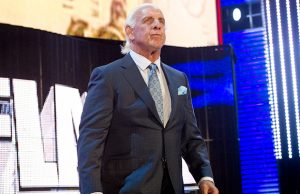
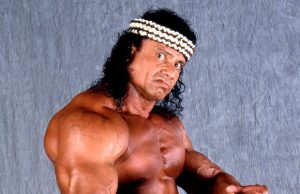
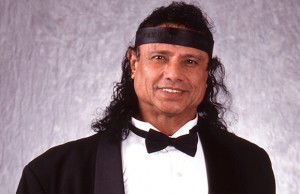













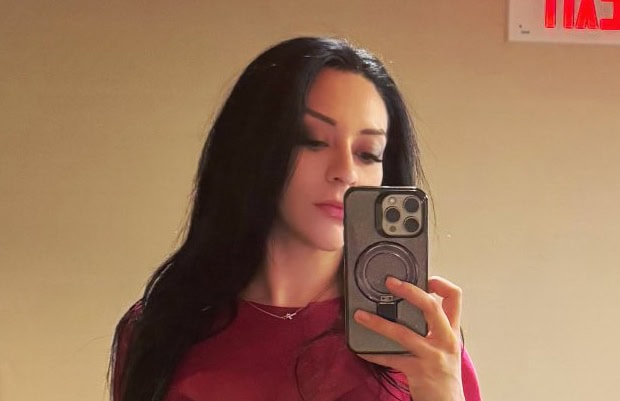
0 comments